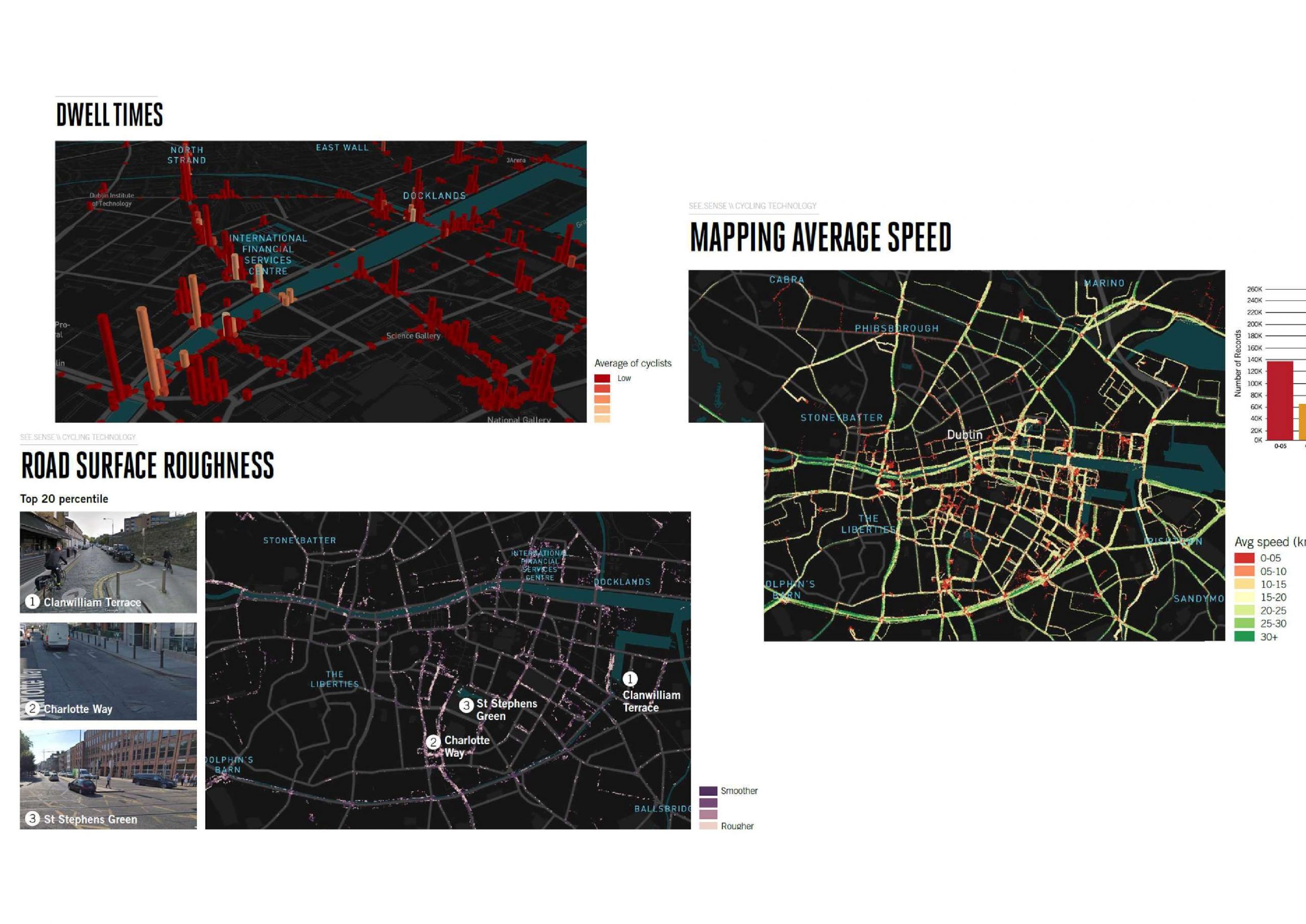Cycling is one of the most sustainable forms of transport, positively impacting on emission levels, congestion, and health. In recent years there has been a major, and welcome, increase in cycling across the Dublin region. But with this positive development comes increased pressure on local authorities to ensure sufficient cycling infrastructure is in place.
Project Activities
After a successful first trial during the 2016 Smart Cycle Challenge, (a Small Business Innovation Research (SBIR) project that sought technology solutions to help improve cycling across Dublin), Dublin City Council’s Smart Docklands partnered with See.Sense to explore how data could be crowd-sourced by cyclists to help improve city planning.
The project was part of a wider EU project, SynchroniCity, designed to accelerate the adoption of new technologies in cities, while dealing with privacy concerns and producing more sustainable solutions.
Throughout the summer of 2019, 800 volunteers across Dublin, Antwerp, and Barcelona took part this innovative smart cycling projects, collectively crowdsourcing valuable data about their day-to-day experiences as cyclists. In Dublin, 200 cyclists received a See.Sense ACE bicycle light containing a sensor that collected information about occurrence of near miss incidents, road surface quality, and the most frequently used cycling routes. Aggregated and anonymised data was subsequently shared with the Council, supporting planners and engineers to make data-driven decisions when upgrading and expanding city cycle infrastructure.

Impact
By providing a wealth of information on popular cycling routes, cycling speeds, and road surfaces, the data is allowing the Council to better understand cyclists’ experiences and improve plans for new cycle corridors and other cycling infrastructure.